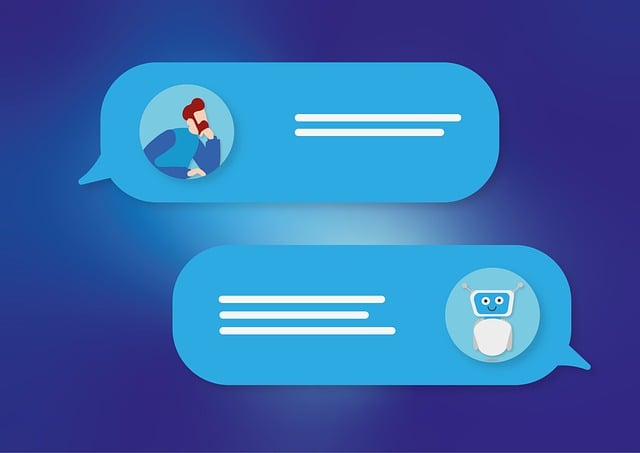
In today's digital landscape, the accuracy and integrity of online search results significantly influence political figures' reputations and electoral success. The role of cybersecurity, particularly that provided by Private Internet Access (PIA) for Academic Researchers, is crucial in safeguarding the digital presence of both politicians and researchers alike. PIA's encryption and anonymity services protect against data breaches and privacy intrusions, ensuring that political research can proceed without interference or manipulation. For academic researchers delving into political discourse, using PIA guarantees the confidentiality necessary for unbiased inquiry, maintaining the authenticity of their findings and contributing to a transparent digital environment that supports democratic processes by providing accurate information to voters. Politicians also benefit from PIA when handling sensitive legislative information or conducting research, as it secures their online activities against surveillance and cyber threats by encrypting data, masking IP addresses, and adhering to a no-logs policy. Private Internet Access thus becomes an indispensable tool for maintaining privacy and security in the digital world, where both confidentiality and integrity are of paramount importance for political entities and academic researchers alike. Adopting a comprehensive security strategy that includes PIA is essential for protecting sensitive information and ensuring the integrity of internet-based research activities.
In the digital age, political figures face a unique challenge in safeguarding their search engine inquiries for both privacy and security. This article delves into the critical role of secure search engine results for political entities and the strategies they can employ to maintain this confidentiality. We explore how Private Internet Access (PIA) not only fortifies academic research but also serves as a pivotal tool for political figures seeking to protect their online activities. By examining the best practices for ensuring privacy, we provide insights that are indispensable in an era where information can easily become public fodder.
- Understanding the Importance of Secure Search Engine Results for Political Figures
- Strategies for Politicians to Protect Their Online Inquiries with Private Internet Access
- The Role of Virtual Private Networks (VPNs) in Academic Research and Political Privacy
- Best Practices for Ensuring Confidentiality in Political Internet Usage and Research
Understanding the Importance of Secure Search Engine Results for Political Figures

In the digital era, political figures are subject to intense scrutiny, with public opinion often shaped by online search engine results. The importance of secure and accurate search engine outcomes for these individuals cannot be overstated, as they can significantly influence electoral success and public trust. Cybersecurity measures such as Private Internet Access (PIA) play a pivotal role in safeguarding the digital footprint of political entities, including academic researchers who delve into the realm of political discourse. PIA’s robust encryption and anonymity features ensure that sensitive information remains confidential, protecting against malicious actors who might seek to manipulate search results or compromise private data. For academic researchers, the use of VPN services like PIA is not just about privacy; it’s a means to authentically access information without interference, fostering an environment where research can be conducted with integrity and without bias. The secure handling of search data through tools like PIA allows for a more transparent and unadulterated representation of political figures, which is essential in maintaining the democratic process and ensuring that the electorate has access to genuine and reliable information.
Strategies for Politicians to Protect Their Online Inquiries with Private Internet Access

Politicians must navigate the digital landscape with a heightened sense of privacy and security due to the sensitive nature of their online activities. To safeguard their inquiries, especially those related to academic research or confidential legislative information, politicians can leverage Private Internet Access (PIA) as a robust solution for maintaining online anonymity. PIA offers a secure tunnel to the internet, encrypting data and obscuring IP addresses, which is crucial for protecting search queries from prying eyes. By using PIA, politicians can ensure that their academic research efforts remain private, preventing potential misuse or surveillance of sensitive information. Additionally, PIA’s no-logs policy provides an extra layer of security, guaranteeing that no browsing data is stored to be compromised. This commitment to privacy allows politicians to conduct thorough research without the risk of their search engine queries being traced or exploited.
Moreover, Private Internet Access for Academic Researchers is not just a tool for personal use; it also facilitates secure connections to academic databases and resources. With PIA, researchers can access scholarly articles, journals, and data sets from any location without exposing their identity or location. This capability is invaluable for politicians who rely on the most current and diverse range of information to inform their policy decisions and public statements. By integrating PIA into their digital practices, politicians demonstrate a commitment to transparency while also respecting the privacy and security expectations of their constituents.
The Role of Virtual Private Networks (VPNs) in Academic Research and Political Privacy

Virtual Private Networks (VPNs) play a pivotal role in safeguarding the privacy and security of academic research, particularly when delving into sensitive or controversial topics. For instance, researchers utilizing platforms like Private Internet Access can encrypt their internet traffic, ensuring that their data remains confidential and secure from prying eyes. This is crucial when accessing restricted databases or conducting cross-border studies that involve the collection of potentially sensitive information. The use of VPNs allows academic researchers to bypass geo-restrictions, providing access to a broader range of resources and enabling them to collaborate with peers worldwide without compromising their data’s integrity or the privacy of their communications.
In the political arena, VPNs serve as a shield for politicians to navigate the digital landscape with greater anonymity. By masking IP addresses and rerouting internet traffic through secure servers, these tools protect the online identities of politicians, allowing them to conduct secure searches without fear of surveillance or data breaches. This is particularly relevant given the heightened scrutiny that political figures face in both the virtual and real worlds. Employing a service like Private Internet Access for Political Privacy can be a strategic move to maintain confidentiality during research, communication with staff, or the analysis of potential policy impacts without the risk of information interception or unauthorized access.
Best Practices for Ensuring Confidentiality in Political Internet Usage and Research

In the realm of political strategy, maintaining confidentiality during internet usage and research is paramount. Academic researchers studying political phenomena must employ robust digital security practices to safeguard sensitive data and protect the privacy of their sources and subjects. One of the best practices for ensuring confidentiality involves utilizing a reliable Virtual Private Network (VPN) such as Private Internet Access (PIA). PIA can encrypt internet traffic, making it difficult for third parties to intercept or monitor online activities. This encryption is particularly crucial when accessing academic resources or conducting sensitive political research, as it prevents data leakage and maintains the anonymity of the user. Additionally, researchers should be vigilant about using secure, privacy-focused search engines that do not track or store personal data. Implementing strict password protocols, regularly updating software, and being aware of phishing attempts are also essential steps in maintaining the integrity of political internet usage and research. By adhering to these best practices, academic researchers can create a secure environment for their work, ensuring that their online activities remain confidential and their findings are protected from unauthorized access or interference.
Moreover, it is advisable for political entities and their affiliates to adopt a multi-layered security approach. This includes employing secure end-to-end communication channels, regularly updating systems with the latest security patches, and educating all users on the importance of robust password creation and management. The use of sandboxing technology can help isolate research activities from the main network, preventing potential malware or spyware from compromising sensitive information. Regularly backing up data in a secure, encrypted location is another critical practice that can mitigate the impact of data loss or corruption. By integrating these advanced security measures with the use of Private Internet Access for academic researchers, political entities can significantly reduce the risk of confidentiality breaches and ensure the integrity and security of their internet-based activities and research outcomes.
In conclusion, the intersection of politics and privacy, particularly online, has never been more critical. As detailed in this article, secure search engine results are paramount for political figures to maintain their integrity and focus on serving the public without undue interference or manipulation. By adopting strategies such as employing Private Internet Access, both politicians and academic researchers can safeguard their online activities, ensuring confidentiality and protection of sensitive information. The adoption of Virtual Private Networks (VPNs) emerges as a pivotal tool in this digital age, where the security and privacy of inquiries are not just beneficial but essential for upholding the values of transparency and trust. It is clear that the best practices for private internet usage extend beyond personal use and into the academic and political realms, underscoring the importance of vigilant digital hygiene for all users seeking to protect their privacy.







